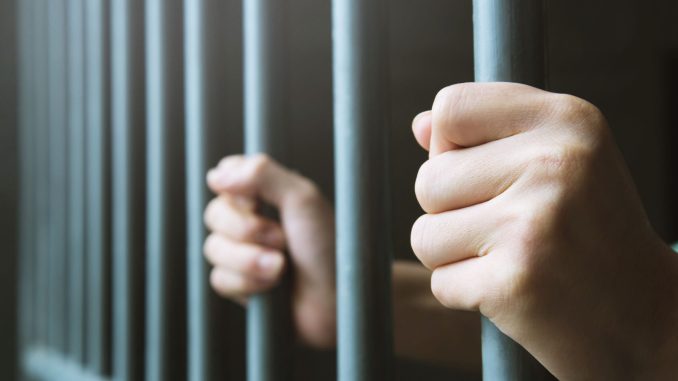
I walked out of prison at age 30 with high hopes after serving nearly eight years for armed bank robbery. I was fortunate to be rescued by a few of the rare hands reaching out to offer help to someone like me.
Others aren’t so lucky.
Even with helping hands, personal change is hard. Research shows it can take a person two months to learn to drink an extra glass of water each day. Imagine trying to become a better version of yourself in prison, a restricted community where negative influences abound.
Change takes work. Every day, programs such as the Prison Fellowship Academy—which helped me radically change my values and behavior—teach prisoners that change is possible and that they can make a positive impact on their communities.
In prison classrooms, people are striving to become what the correctional system is supposed to create: good citizens.
When I left prison, I thought the naysayers and negative influences were behind me. I had done my time and earned my bachelor’s degree. I had changed. I was ready to put into action all I had learned, envisioning law school and a judgeship on my horizon.
I was naive.
Too often, people coming home from prison never get to put into practice what they learned in the classroom. After completing my sentence, I entered a “second prison” of barriers that held me back from opportunities to build a better life.
With the perseverance I had developed in prison, I graduated from law school magna cum laude. But even though I met all the qualifications and demonstrated my changed character, the board of bar examiners denied my licensure due to my felony record.
It took 10 years, two bar exams, and two trips to the Virginia Supreme Court to finally become a licensed attorney.
The “second prison” is waiting for others, too. In the next two years, 57% of those in prison will return home. They face more than 44,000 legal barriers to employment, housing, education, and other bedrocks of a safe and healthy life.
Many will return to their former lifestyles, continuing to create victims and break public trust. But it doesn’t have to be that way. Active accountability in prison and the opportunity for a second chance can pave the way to safer streets. Affirming that people can recast their lives in a new mold, Prison Fellowship and more than 800 partner organizations celebrate April as Second Chance Month.
We don’t just want people to stay out of prison, we want them to thrive. All Americans stand to benefit when people have avenues to live out their second chance. According to a 2018 study, giving second chances can inspire hope and achievement, as evidenced by the military, the nation’s largest employer: Individuals with felony-level criminal backgrounds have been promoted more quickly and to higher ranks than other enlistees.
I know firsthand the power of a second chance, and I witness it every day. As vice president of program design and evaluation at Prison Fellowship, I’ve seen the excitement of people coming home after prison.
That eagerness fades when barriers shut them out of opportunities such as employment, housing, and education. Some of these people go back to prison, and even if they don’t, they lose their drive to succeed. The voice that told them they could “change the world” fades. They begin to believe the voice that says that the status quo is the best they can achieve.
When someone is denied a second chance, his or her children and families suffer, too. The taxpayer loses when people can’t participate fully in the workforce. And our nation misses out because of the unrealized potential of people held back by their past.
As Prison Fellowship founder Chuck Colson said, if we want people to become contributing members of society, “we should not kick the bottom rungs off the difficult ladder they have to climb.”
It’s time to put our values to work. Our great country believes in justice and accountability—and in the potential of people to change. If we want safer, flourishing communities, we cannot sideline Americans with a criminal record from opportunities to work hard and be responsible. One prison is enough.
The Daily Signal publishes a variety of perspectives. Nothing written here is to be construed as representing the views of The Heritage Foundation.
Have an opinion about this article? To sound off, please email letters@DailySignal.com and we’ll consider publishing your edited remarks in our regular “We Hear You” feature. Remember to include the url or headline of the article plus your name and town and/or state.

